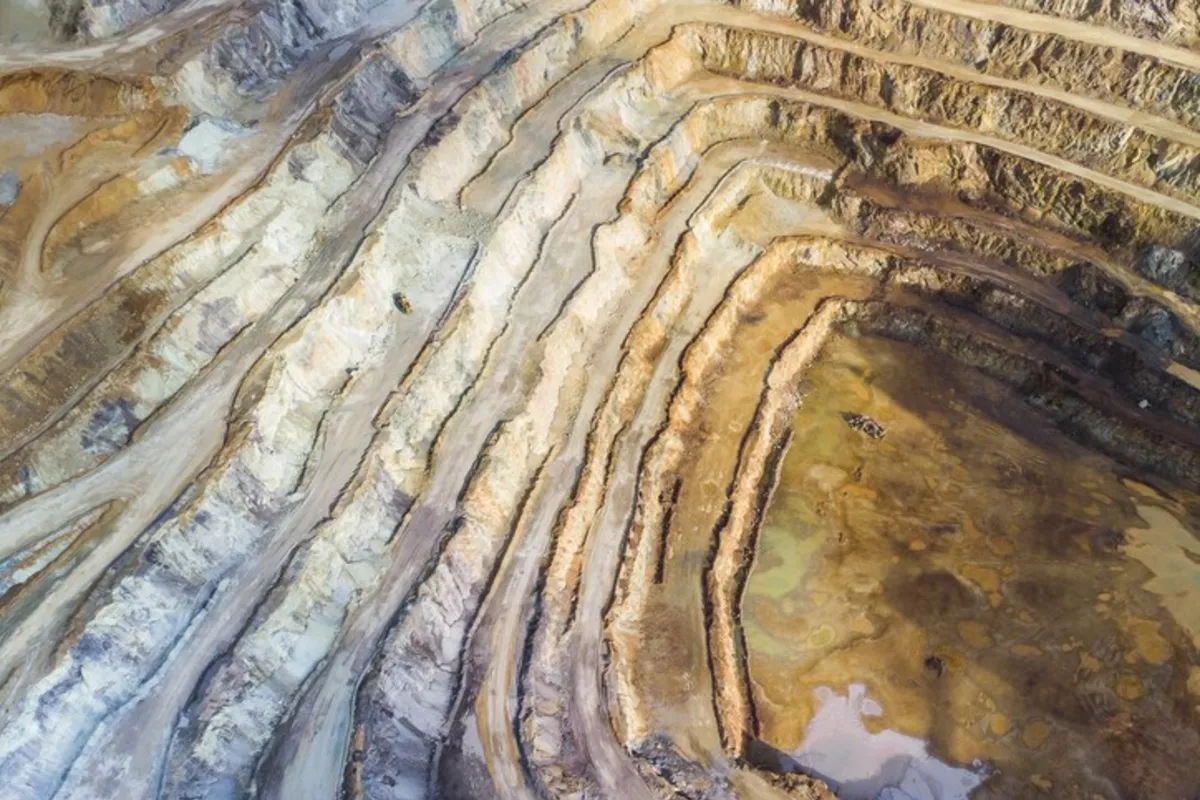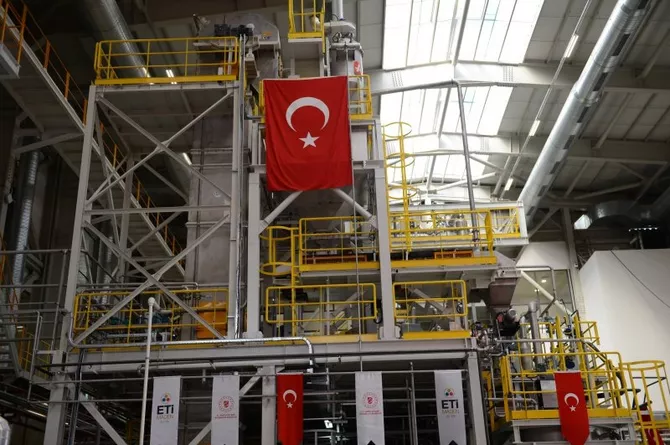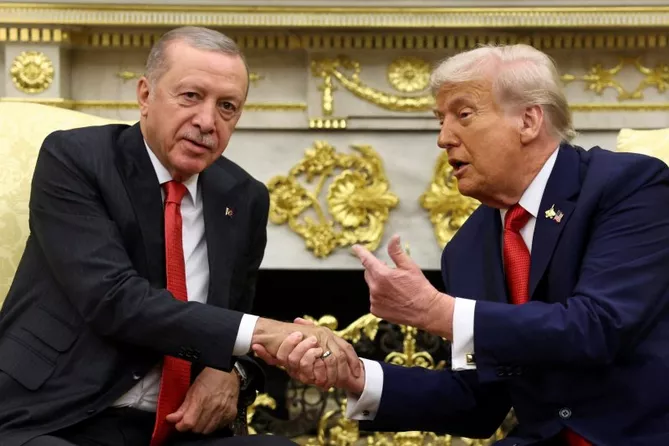
photo: Thermo Fisher Scientific
Türkiye is positioning itself as a key U.S. ally through rare-earth cooperation, reshaping the geopolitical balance amid Washington’s rivalry with China.
When it comes to strategic foresight, few nations have demonstrated the ability to reinvent their geopolitical importance as skillfully as Türkiye. In a move that could redefine the country’s relations with the West, Ankara and Washington are reportedly exploring a partnership to develop a massive rare-earth deposit recently discovered in the Beylikova district of Central Anatolia, according to Bloomberg. Sources close to the matter suggest that talks with the United States have accelerated after Turkish authorities failed to reach agreements with China and Russia.
Ankara’s ambitions are clear. It plans to construct a refining facility and is holding negotiations on potential cooperation not only with the U.S. but also with Canada and Switzerland. Türkiye first announced the discovery of the Beylikova deposit in Eskişehir province in 2022. According to Turkish estimates, this deposit is the second-largest in the world in terms of ore containing rare-earth elements, with reserves reaching 694 million tons. On this basis, Türkiye inaugurated a pilot rare-earth processing plant in Eskişehir in 2023-an important milestone signaling the country’s intention to transform itself from a raw material holder into a technological player.

Photo: Anadolu Agency
Originally, China appeared to be the natural partner. A memorandum of understanding was signed last year, but Beijing refused to share its technologies and insisted on processing the ore exclusively in China. Ankara, unwilling to become a mere supplier of raw materials, walked away from the deal. It was at this juncture that President Recep Tayyip Erdoğan visited Washington in September to meet Donald Trump. The meeting appears to have borne fruit-afterward, both sides hinted at a “new page” in bilateral relations.
In September 2024, Türkiye officially joined the Minerals Security Partnership (MSP), pledging to cooperate with the United States, the European Union, and other partners in the production of critical raw materials and rare-earth elements. It was a logical step for a country that already mines 70 out of the 90 commercially traded minerals worldwide and ranks tenth globally in mineral diversity. Türkiye holds 2.2% of the world’s industrial raw materials reserves, 1% of coal reserves, 0.8% of geothermal energy potential, and 0.4% of metallic mineral reserves.
The pilot plant in Beylikova currently processes rare-earth elements to produce around 1,200 tons of oxide annually, proving that Türkiye is not merely announcing grand ambitions-it is already building an industrial foundation to support them.
For Washington, Ankara’s proposal could not have come at a better moment. Donald Trump’s administration has made it a top strategic priority to end China’s dominance in rare-earth mining and global supply chains. As early as April, the defense and technology-focused outlet TurDef reported that during Senate hearings, U.S. Ambassador Thomas Barrack specifically mentioned Türkiye’s untapped rare-earth resources as a strategic opportunity amid the evolving industrial and trade landscape of the United States. Barrack emphasized that Türkiye, already a critical NATO military ally, could become an equally crucial strategic partner in securing rare-earth and mineral resources.
The Beylikova deposit is not the largest in the world-China, Vietnam, and the United States still lead in terms of production-but it is one of the biggest untapped light rare-earth metal reserves in Europe. According to the U.S. Department of Defense, the site’s lanthanum, cerium, neodymium, and praseodymium are of strategic importance, as they are used in producing high-performance magnets critical for missile guidance systems, fighter jets, wind turbines, and electric vehicles.
This makes the Turkish discovery not merely an economic asset but a potential pillar of NATO’s industrial security. If developed with Western support, the site could strengthen the alliance’s technological resilience while reducing its dependence on Chinese supply chains. For the U.S., Türkiye’s proposal represents a rare opportunity to undercut Beijing’s advantages in the rare-earth market by investing in a strategically located and politically aligned alternative.
However, the U.S. Geological Survey (USGS) still does not list Türkiye among major rare-earth producers, simply because Beylikova remains unexploited on an industrial scale. This absence, paradoxically, opens a unique window for U.S. investors and engineers. Washington is in a position to provide technology transfers and capital investment-something Ankara could not secure from Beijing.
In recent years, rare-earth elements have taken center stage in global geopolitics, largely because of their indispensable role in high technology and renewable energy. As the world shifts toward electric mobility, digitalization, and defense modernization, the demand for these elements-used in semiconductors, batteries, and precision systems-has exploded.
China currently dominates both production and refining. Whenever geopolitical tensions with Washington rise, Beijing routinely hints at restricting exports of these materials-an implicit yet powerful tool of economic coercion. For the United States, this dependence on China has become untenable. Washington’s strategy, therefore, is to diversify supply chains and create a network of reliable partners that can collectively reduce China’s leverage.
That ambition explains Trump’s seemingly unrelated overtures toward Canada, Greenland, and Ukraine-all of which possess rare-earth or critical mineral reserves. Even his regional initiatives, such as the so-called “Trump Route for International Peace and Prosperity” (TRIPP) through Armenia, and his efforts in Gaza, have a resource-security dimension. In each case, the objective is the same: to build resilience in America’s industrial base by securing alternative sources of strategic materials.

Photo: Reuters
By offering cooperation on Beylikova, Türkiye has found a pathway to Washington’s heart. The proposal aligns perfectly with U.S. priorities, positioning Ankara as a critical node in the Western rare-earth network. It also helps Türkiye strengthen its political standing within NATO and enhance its leverage in other sensitive issues-such as its exclusion from the F-35 fighter jet program, a lingering sore point in Turkish-American relations.
If successful, this partnership would do more than secure mineral access-it would anchor Türkiye firmly back within the Western strategic orbit, restoring trust after years of strained relations. Erdoğan’s approach is pragmatic: by becoming indispensable, Türkiye ensures that Washington must engage with it not as a subordinate ally, but as an equal partner.
The discovery of Beylikova’s rare-earth deposits is more than a geological event-it is a geopolitical opportunity. Türkiye’s ability to turn this find into a lever of strategic influence demonstrates both foresight and adaptability. The project could redefine the country’s role in global supply chains, deepen transatlantic cooperation, and simultaneously reduce Western vulnerability to Chinese economic pressure.
For Trump’s Washington, the Turkish initiative provides a timely and tangible way to advance its de-Sinicization policy in critical industries. For Ankara, it opens a new chapter of influence-one that blends resource diplomacy with defense cooperation.
In a world increasingly shaped by the geopolitics of minerals, Türkiye may have found not only the key to America’s heart but also a new foundation for its own great-power aspirations.
By Tural Heybatov
Share on social media